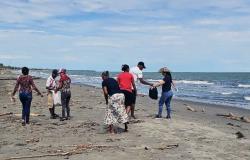
The director of the Institute of Religious Sciences and Philosophy of the UCN, Dr. Francisco Correa Schnake, refers to the importance of the Diploma in Bioethical Discernment for the training of academics and professionals
Next Tuesday, June 18, the tenth version of the Diploma in Bioethical Discernment of the Universidad Católica del Norte (UCN) begins, a program taught by the Institute of Religious Sciences and Philosophy and the Faculty of Medicine that seeks to return to the original intuition of bioethics through an analytical dialogue perspective, between life sciences and technology.
In the following interview, the director of the Institute of Religious Sciences and Philosophy, Dr. Francisco Correa Schnake, refers to the importance of participating and training in this type of programs, to the contribution made to the Research Committees of the house of studies, and the news of this new version of the diploma, among other topics.
In addition, Dr. Correa urges internal and external academics and professionals of the Institution to enroll in the Diploma in Bioethical Discernment, which lasts six months and is 100% online.
Why is it important for academics from the University to participate in these types of programs that address topics such as bioethics?
The participation of academics in this type of programs is important because the main challenges we face as a society are related to ethical problems: in the personal, family, social, economic or political sphere. In this sense, it is necessary to understand that the analysis and search for solutions to ethical challenges is not the exclusive responsibility of a particular group, but rather the responsibility of all members of the University Community and society. Ethics is not just another discipline that must be learned, as an addition to life in general or professionally, but rather a fundamental human dimension of every human being that challenges us to be aware and responsible to intention our way of thinking, loving and behaving. for a more dignified and human development.
INVESTIGATION COMMITTEES
How does this diploma contribute to the UCN Research Committees and what are the next challenges in this matter?
The training provided in the Diploma in Bioethical Discernment aims to learn historical elements, minimum contents and methods that enable an adequate process of discernment or deliberation. It is a permanent exercise of dialogic praxis that is based on the recognition and appreciation of diversity, real and disciplinary, in a joint search to analyze the research proposals as widely as possible; always seeking to protect the dignity of living beings, real and situated, including the contribution of scientific development and technical advances. The permanent challenge is to understand that, in the bioethical reflection of a reality that challenges us all, we are risking the possibility of a dignified life for current and future generations.
What new features does the tenth version of the UCN Diploma in Bioethical Discernment incorporate?
Every year new themes and approaches are incorporated based on the accumulated experience and the challenges that reality poses to us. Particularly, this year the program was updated to give greater curricular coherence and breadth of vision. On the other hand, the academic team is interdisciplinary, which allows promoting a broad, dynamic and meaningful thematic dialogue for students from different disciplines. It is important to remember that the fundamental proposal of the program seeks to recover the initial intuition of bioethics as an “ethics of life”; an ethical view that is not limited or restricted to a specific dimension, but rather a broad discernment applicable to different areas or dimensions of human life.
ACADEMIC REFLECTION
In addition to UCN academics, is the diploma also open to internal and external professionals?
Not only people who belong to universities or committees can join this program. It is very important that people from outside the academic world participate, people from the most varied backgrounds, because with their presence they enrich the reflection, open up to social diversity, link university reflection with actors and social perspectives that have something to contribute, and ground the academic reflection to avoid the temptation of a disembodied academic reflection or decontextualized idealist reflection.





